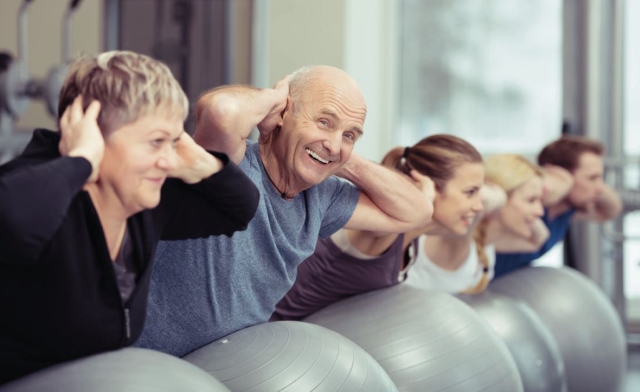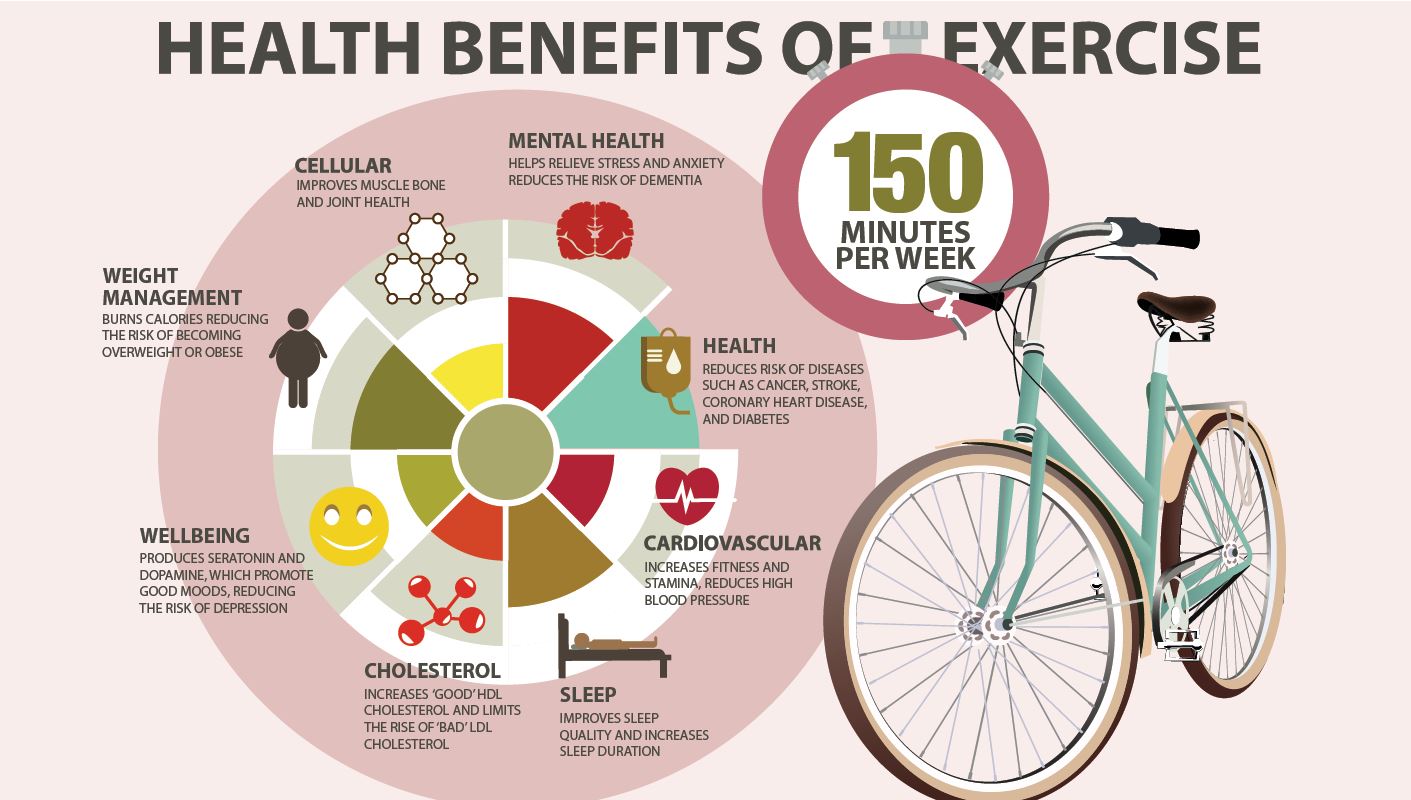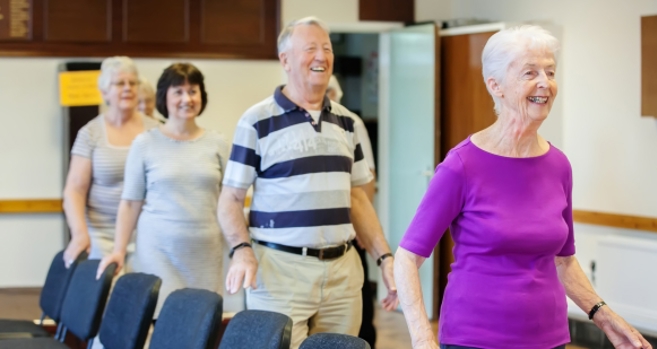Keep active and healthy
Updated: 28 Jan 2025
If you’re aiming to be healthy, the latest research suggests it pays to be as active as possible. Regardless of age, activity levels can be as influential on health as giving up smoking or maintaining a balanced diet.

As a society, the UK is less active than ever before. Recent research by the British Heart Foundation suggests that adults aged 19 to 64 in England spend an average of 9.5 hours a day involved in sedentary activities.
This could be sitting at our desks, in our motor vehicles or in front of the television or computer screen for entertainment.
The same research highlighted that by the ages of 65 to 74, we could be involved in sedentary activities for 10 hours a day or more.
By 75 plus, the figure rises to 11 hours per day. The problem with this inactivity is that it can be unhealthy.
For a start, muscles need to be used in order to maintain their strength and optimum function. Not using certain muscles can significantly weaken them making us prone to falls.
Inactivity, it seems, could also make us age quicker.
Major health benefits
The findings of a recent research project involving a number of leading universities in the United States suggests that inactivity could alter our DNA – and specifically in relation to the aging process.
By contrast, keeping active and undertaking regular exercise delivers major health benefits. It can reduce your risk of major illnesses - such as heart disease, stroke, type 2 diabetes and cancer - by up to 50%. It can also lower your risk of early death by as much as 30%.
Thankfully, boosting activity levels in order to reap the dividends of a more active lifestyle doesn’t have to be difficult…

How much activity? And how often?
It is currently recommended by the NHS that to derive health benefits, adults in the UK should aim for 150 minutes (or two and a half hours) of moderate aerobic activity a week.
This activity doesn’t have to be all at once. It could be made up of 30 minutes of activity spread over five separate days.
As well as aerobic exercise, which gets the heart pumping (like taking a brisk walk or riding a bike), it’s important you take part in activities that improve muscle strength. At least twice a week should be focused on muscle strengthening.
Balance and co-ordination-focused activities are good too. They can be especially beneficial for older adults in reducing the risk of falling.
Muscle strengthening activities
Maintaining muscle strength is important because it directly influences all daily movement as well as our ability to build and maintain strong bones, to regulate blood sugar and blood pressure, and to help maintain a healthy weight.
There are lots of different ways to strengthen your muscles both at the gym and at home.
Examples of muscle-strengthening activities for most people include:
- yoga
- lifting weights
- working with resistance bands
- doing exercises that use your own body weight, such as push-ups and sit-ups
- heavy gardening, such as digging and shovelling
Aerobic activity
A whole range of aerobic activities can help you towards the 150 minutes a week target. They include:
- running
- swimming
- riding a bike
- dancing (eg line dancing, ballroom, salsa, Zumba)
- playing tennis, badminton, squash or any sport
More moderate aerobic activity (such as walking or water aerobics) should raise your heart rate and make you breathe faster and feel warmer. When exercising at the required level you’ll still be able to talk but you won’t be able to sing the words to a song.
Unfortunately, daily chores such as shopping, cooking or housework don’t count towards your 150 minutes because the effort required isn’t enough to raise your heart rate. They are important nonetheless as they help to break up periods of sitting.
Incorporating these activities into your routine and aiming for a target of 150 minutes a week could all contribute to a healthier happier you.
Though moderate physical activity such as brisk walking is safe for most people, health experts suggest that you talk to your doctor before you start an exercise programme if any of the following apply: you have heart disease, you have asthma or lung disease, or you have type 1 or type 2 diabetes.

Oddfellows exercise sessions
Many Oddfellows branches run gentle fitness or exercise classes for their members, including sessions online such as Chi Gung, Tai Chi and Meditation which are also open to guests to enjoy for free. Search our Events Finder to see what's coming up to help you keep active and healthy into later life.




